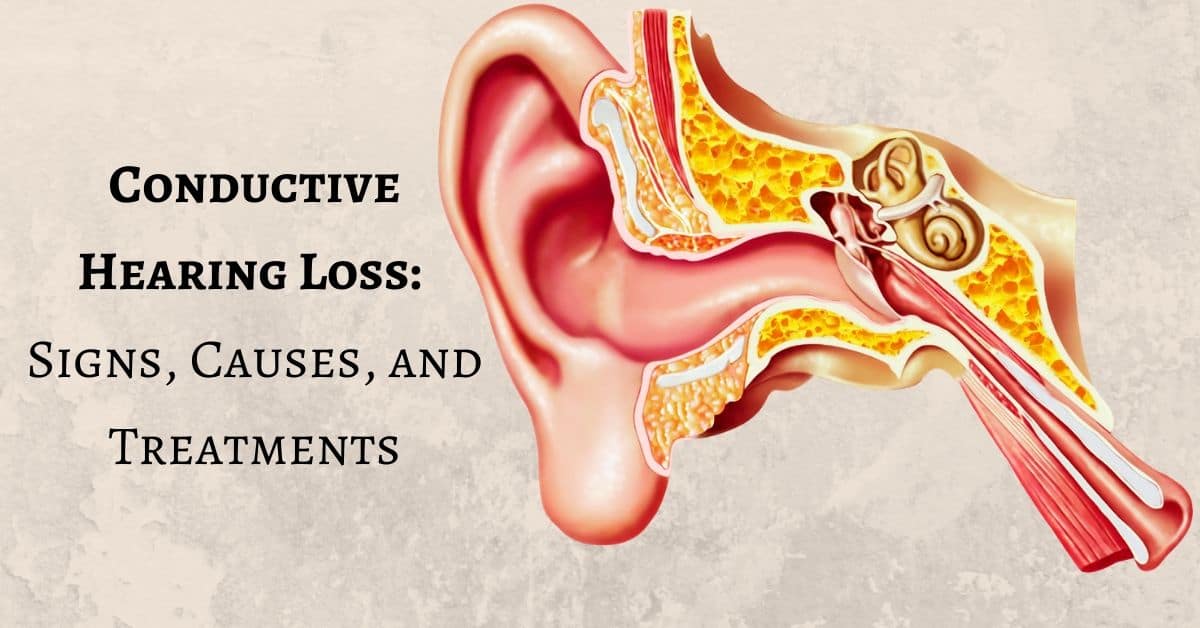
- Signs Your Earwax Buildup Needs Professional Attention - May 29, 2025
- A Step-by-Step Look at How Hearing Aids Make Sounds Sharper - May 5, 2025
- Causes of Conductive Hearing Loss? - April 27, 2025
Among the two main types of hearing loss, conductive hearing loss is far less common. The other main type—sensorineural hearing loss—is the type of loss most people encounter in older age when the cilia of the inner ear are damaged after years of sonic inundation. However, conductive hearing loss works rather differently. This type of hearing loss is located in the middle to outer ear and tends to be due to an obstruction to the hearing process. Let’s take a deeper look at the signs, causes, and treatments available for conductive hearing loss. Although it is less common that sensorineural hearing loss, it remains a condition that affects many people each year.
Signs of Conductive Hearing Loss
Some of the common signs of conductive hearing loss make it difficult to discern from other types of hearing loss, but a few features tend to be unique. Rather than a gradual deterioration of hearing ability, conductive hearing loss tends to result in a muffled sound. The loss may also be sudden or marked by a sudden change in hearing ability. Some people experience a sensation of stuffed or full ears, such as a person would with earwax buildup. In the worst cases, there can also be experiences of pain, dizziness, or other symptoms of infection.
Causes of Conductive Hearing Loss
Whereas sensorineural hearing loss tends to be caused by damage to the tiny hair-like cilia of the inner ear, conductive hearing loss has a wide range of potential causes. Some simply experience an obstruction to hearing in the outer ear due to earwax buildup or a foreign body in the way. Others experience water trapped in the middle ear, otherwise known as swimmer’s ear, and this condition can lead to related infections, as well. Some of the more severe conditions that can cause conductive hearing loss include actual damage to the ear. Due to accident or injury a person may have a physical obstruction to hearing, such as a bone injury close to the ear or even a hole in the eardrum. In addition to rarer conditions such as cholesteatoma or otosclerosis, each resulting in hearing loss as a side effect of major health conditions, some have conductive hearing loss due to an infection in the middle ear, commonly known as otitis media. Ear infections of this type can affect children and adults, and the resulting hearing loss may be temporary or sustained, sometimes even permanent.
Treatment for Conductive Hearing Loss
The good news is that treatment is available for many forms of conductive hearing loss. When conductive hearing loss is caused by an illness, the treatment for the hearing loss is to address the underlying condition. However, in some cases, conductive hearing loss is caused by injury or damage to the outer or middle ear. In those cases, surgery can be a medical option to cure hearing loss. With such a wide range of treatment possibilities, it is important to begin with a consultation with a hearing professional to get a complete diagnosis. Your hearing health professional will begin with a consultation about any events that might have brought on the hearing loss. When the diagnosis is complete, you may find that solutions are as simple as earwax removal. However, if the cause of conductive hearing loss cannot be solved on its own, then your hearing professional may suggest hearing aids to solve the symptomatic experience of reduced hearing ability.
Hearing aids are remarkably effective tools to restore hearing, particularly in the range of human speech. After a hearing test, your audiologist or hearing professional will be able to diagnose the range of hearing that is missing. After consulting about your lifestyle needs, you can discover the range of aids that are on the market, specifically the ones that are suited to your needs. These aids will not solve the underlying cause of hearing loss, but they will be able to assist in the process of hearing when you need it most. Although it is important to consider that hearing aids are not a magic key to restore all hearing ability, they can be useful aids in the event that conductive hearing loss does not have an immediate remedy in medical intervention.
